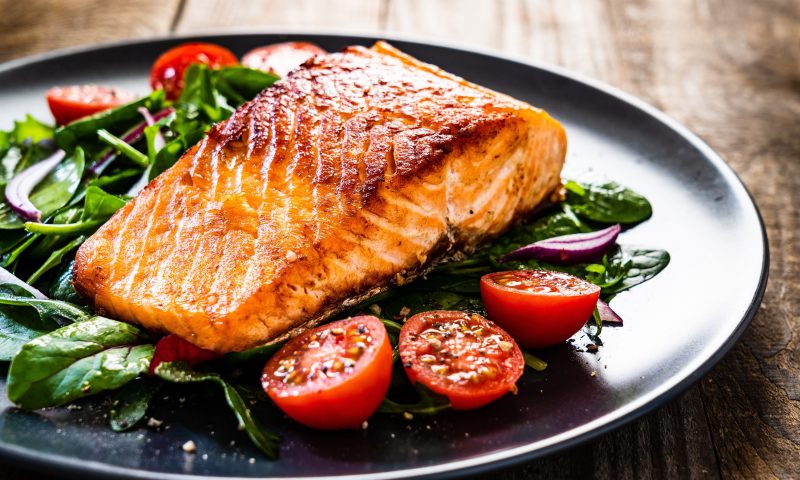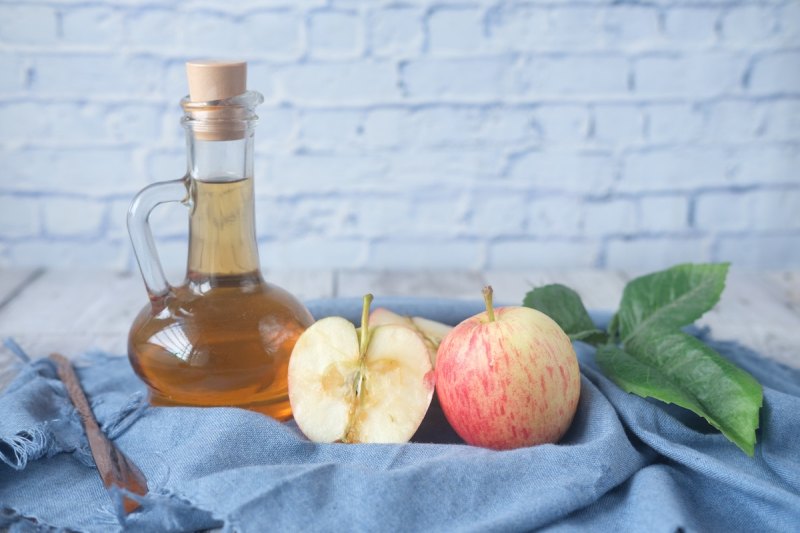Did you know that B vitamins play a vital role in your health? They are water-soluble vitamins present in several foods. Your body depends on them to function optimally because they enhance metabolism and turn food into energy.
However, your body does not make enough B vitamins on its own. So, you have to get B vitamins regularly from the food you eat. As a nutritionist, I am always encouraging my clients to eat certain foods that are high in the B vitamins in order to reap the many benefits. Fortunately, it is easy to get foods high in B vitamins, and we’ll explore nine of them in this guide!
9 foods high in B vitamins to include in your diet

Foods that are high in B vitamins usually provide at least 20% of the Recommended Dietary Allowance (RDA) per serving. Moreover, foods that offer 10–19% can still be considered a good source.
Here is our list of foods high in B vitamins we recommend adding to your grocery list:
- Liver: Liver is rich in B vitamins. It doesn’t matter whether you get it from beef, pork, or chicken. For instance, beef liver contains high amounts of all eight B vitamins.
- Salmon: This is a delicious and nutrient-dense fish. It’s rich in several B vitamins, including B1, B2, B3, B5, B6, and B12.
- Leafy greens: Leafy greens, such as spinach, romaine lettuce, collard greens, and turnip greens, are well-known for their high folate (vitamin B9) content. However, folate can be destroyed during cooking, so it’s best not to steam the greens for too long.
- Citrus fruits: Oranges, lemons, and clementines are some of the citrus fruits with high B vitamin content; they contain vitamins B1, B2, B3, B5, B6, and B9.
- Eggs: Eggs are easily accessible and high in B vitamins, especially vitamins B5 and B12. They are also rich in vitamins B2, B7, and B9.
- Avocados: Avocados are one of the most underrated sources of vitamins. Avocados contain many vitamins and minerals, and they are particularly rich in folate and vitamin B6.
- Milk and yogurt: While milk is an excellent source of vitamins B1, B2, B5, and B12, yogurt contains vitamins B2 and B12.
- Oysters, clams, and mussels: These common shellfish are high in vitamins B12 and B2. They also have small amounts of vitamins B1, B3, and B9.
- Legumes: Legumes are your go-to source for high folate. They also contain vitamins B12, B2, B3, B5, and B6.
What are the 8 B vitamins?

The eight B vitamins are collectively referred to as the B complex vitamins. They are the following:
- Vitamin B1—Thiamine
- Vitamin B2—Riboflavin
- Vitamin B3—Niacin
- Vitamin B5—Pantothenic acid
- Vitamin B6—Pyridoxine
- Vitamin B7—Biotin
- Vitamin B9—Folate/Folic acid
- Vitamin B12—Cyanocobalamin
What are the benefits of B vitamins?

Boosts energy levels
B vitamins play a crucial role in producing energy. They convert carbohydrates, lipids, and proteins into energy, which your cells need to function optimally. This can help you prevent fatigue and stay alert.
A study shows that “ingested food is digested by enzymes that break down carbohydrates into monomeric sugars (monosaccharides), lipids into fatty acids, and proteins into amino acids. Sugars, fatty acids and amino acids enter the cell, where a gradual oxidation occurs, first in the cytosol, then in the mitochondria.’’ Vitamin B facilitates this energy production process by activating enzymes and promoting metabolism.
Promotes brain health and mental function
Vitamins B6, B12, and B9 play a crucial role in promoting brain health. They help the body to produce neurotransmitters, which are chemicals that send messages from the brain to various cells in the body. These chemicals regulate your mood and perform other cognitive functions.
Maintains healthy skin, nails, and hair
Manufacturers of skin, hair, and nail care products frequently use B vitamins, especially riboflavin (B2) and biotin (B7). So, if you desire long, straight hair, strong nails, and clear skin, these vitamins are non-negotiable in your diet.
How do you know if you are deficient in B vitamins?

Since B vitamins are essential for your health, a deficiency can potentially lead to health issues. This usually starts with symptoms such as the following:
- Fatigue
- Restlessness
- Skin changes
- Muscle weakness
- Nausea
- Cramping
- Loss of appetite
- Sleep disturbances
- Vomiting or diarrhea
- Sudden weight loss
- Conjunctivitis (pink eye)
- Alopecia (hair loss)
Is there any risk of consuming too much of the B vitamins?

There should always be a balance when you consume food in general. Otherwise, consuming an excess of a particular vitamin can be risky. Although your body can flush out excess B vitamins through urine, it cannot sustain the process for too long. Over time, you may experience any one or more of the following symptoms:
- Itching
- Nausea
- Acne
- Dizziness
- Flushing (red, hot skin)
- Nerve damage
- Loss of motor control
- Liver damage
- Numbness
While you can reduce your intake of B vitamins if you experience the above symptoms, it’s advisable to contact your physician for the best possible solution.
Frequently asked questions

What depletes B vitamins from the body?
Poor diet, excessive alcohol intake, smoking, chronic physical or emotional stress, and medical conditions like liver or kidney problems can deplete the B vitamins.
What is the #1 food highest in B12?
Beef liver has the highest vitamin B12 content. Just 100 grams of beef liver contains over 2500% of the daily recommended intake.
What increases vitamin B absorption?
Stomach acid enhances vitamin B absorption. So, you can drink a little lemon juice or apple cider vinegar before eating vitamin B-rich foods to stimulate the acid production. Another factor is good gut flora and a healthy gut lining. These also aid the absorption of B vitamins. Therefore, incorporate fiber-rich foods or fermented foods, such as yogurt, to enhance your gut health.




